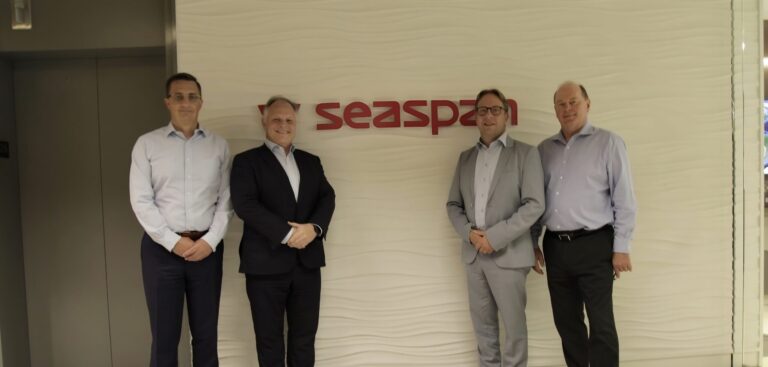MAN Energy Solutions has signed a conversion commitment agreement with Seaspan Corporation, in collaboration with international liner shipping company Hapag-Lloyd, for methanol main engine retrofit solutions.
MAN PrimeServ (MAN Energy Solutions’ after-sales division) will deliver 15 engine retrofit solutions for conversion of vessels powered by individual MAN B&W S90-type fuel-oil-powered engines (from the Seaspan and Hapag-Lloyd fleets) to dual-fuel ME-LGIM engines capable of running on green methanol. The agreement includes 45 optional engine retrofit solutions. Each conversion can provide a CO2 reduction of 50,000-70,000 metric tons each year, when operating on green methanol.
“Seaspan and Hapag-Lloyd are significant maritime stakeholders with strong fleet-decarbonization commitments and strategies,” said Thomas Leander, MAN Energy Solutions’ head of solutions and site manager, Frederikshavn, Denmark.
“This agreement shows clear intent to drive the industry transition toward zero-carbon shipping. Retrofitting existing engines to dual-fuel running is one of the most effective ways to reduce greenhouse gas emissions and to derive greater efficiency and profitability from an existing shipping fleet, while simultaneously delivering fuel flexibility and extending operational lifetimes.
“Crucially, this also avoids the unnecessary building of additional tonnage with associated CO2 emissions, and thereby showcases that retrofitting the existing maritime fleet is an important and feasible path. With this collaborative agreement, we proceed [with] our journey providing decarbonization solutions for the maritime industry.”
MAN developed the ME-LGIM (liquid gas injection methanol) dual-fuel engine for operation on methanol as well as conventional fuel. The engine is based on the company’s proven ME-series, with approximately 8,500 engines in service. When operating on green methanol, the engine offers carbon-neutral propulsion for large merchant-marine vessels. Currently, more than 100 ME-LGIM engines are on order or in service, more than 50 of which are G95ME-C10.5-LGIM variants.



